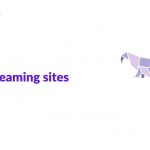In 2020 we’ve seen businesses around the world forced into remote working circumstances. Already, there was something of a trend developing toward more flexible working environments and schedules, at least in some industries.
We’ve seen more companies buying into the idea of hiring freelancers, for instance, and there has also been a relatively meteoric rise in what we now called “coworking” environments, or shared workspaces.
These developments helped to support the idea that workplaces were spreading out, even before 2020. Now, however — for the time being at least — it’s a matter of safety.
People simply can’t be together in tight, indoor environments, which means that businesses that hope to stay active and continue to generate profits have to adapt, and find ways to thrive under new conditions.
In a phrase, that means adapting to remote work. And to that end, the following are some tools that can help businesses to pull this transition off, and which are increasingly essential in the modern environment.
Contents
1. A Go-to Communications Platform
In many cases, businesses today already use communications platforms that allow their employees to log chats, message conveniently, and share files back and forth.
Now, however, with workplaces shut down, a communications platform is all the more essential as something of a substitute for an office — a place where employees can gather and share the information they need to share in order to go about their jobs. PCMag looked into some of the most popular options on the market (Slack and Microsoft Teams) with a helpful comparison.
But what it really comes down to is the depth of features in both systems and some others like them. These platforms enable full-fledged communication and meeting capabilities that can help any business operating under remote conditions to survive.
2. A Content Management System
Content management systems can solve some problems similar to those addressed by communications platforms. In this case, however, the benefits are more about keeping documents, projects, and other bits of work-related content secure and accessible in a digital environment.
A page on content management at Box delves into some of the details of what these systems can do, and notes that they can ultimately result in better workflows, digital security, and easy integration of any apps the business might make use of.
Basically, a content management system puts office programs, projects, and documents in one secure place where employees can access and work with them remotely.
3. Clear Guidelines on Timing & Expectations
This point is not about a specific tool or software program. However, it’s still an absolute essential for businesses dealing with remote work. Fortunately, the idea is simple: Managers and business owners need to draw up clear guidelines regarding expectations of employees’ remote contributions.
Without ordinary hours in an actual workplace, the timing and execution of projects will inevitably change. Additionally, employees working at home are going to have complications to deal with (such as, perhaps, children who are home from school).
They would also need a clear timeline of their payroll and benefits, hence the need for a running payroll guide to incorporate into your system
For these reasons, managers and owners need to re-craft expectations — not for less work, but for productivity through flexibility.
4. VPNs for Employees
A VPN is a “virtual private network” that any internet user can set up, basically to protect activity from public networks. The VPN acts as a private network within the public one, masking IP addresses and ensuring that communications and other activities are not being looked in on.
Where private internet use is concerned, it’s up to any individual to decide whether or not to use a VPN. With employees working remotely, however, it’s in the interest of businesses to provide said employees with VPN options, so that any work-related activity is kept safe.
With this in mind, we identified the ‘7 Best Business VPN Solutions’ for security and reliability back in June. Any of the options there can be excellent solutions for business in 2020.
There’s no way around the fact that the environment is tricky for businesses right now. It’s far from ideal for employees to have to spread out, particularly given that this wasn’t something companies distinctly planned for.
By implementing remote work practices and taking advantage of these tools and ideas though, companies can better ensure that they stay operational and productive. They may even become more flexible and innovative in the process.













